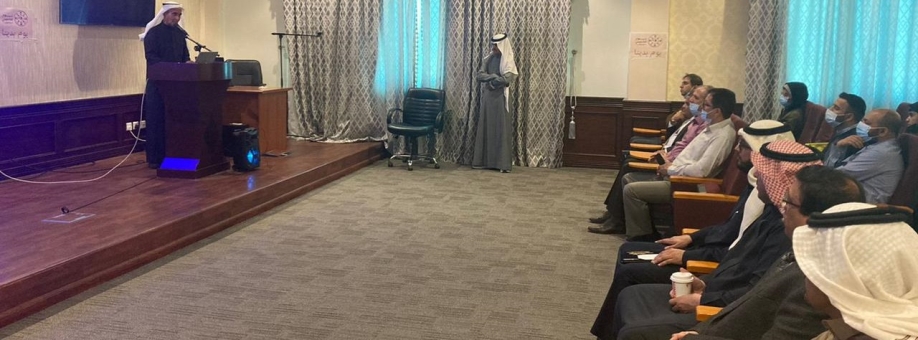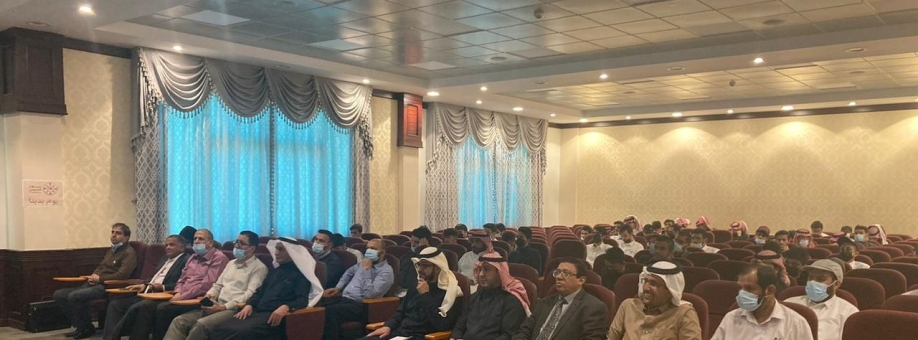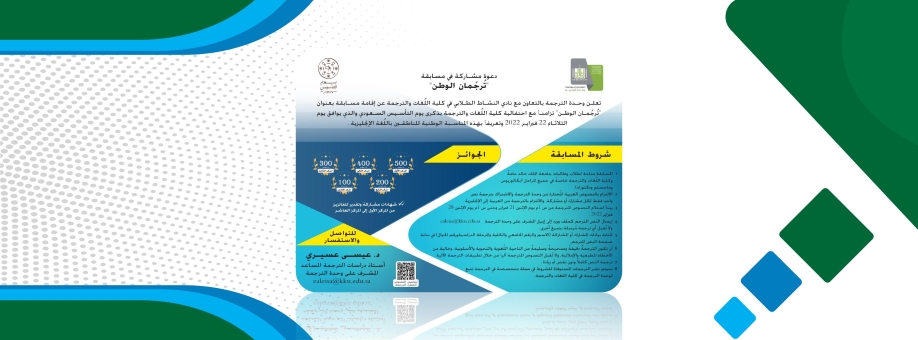Translation Competition Award Ceremony
The Translation Unit (TU) organized a translation competition titled "Translator of the Nation", coinciding with the faculty's celebration of Saudi Arabia's 'Founding Day' on Tuesday, 22 February 2022. Participants were involved in translating several journalistic texts about this national and remarkable occasion. This competition was received warmly by our MA and BA students on several campuses, thus raising awareness about this occasion and reinforcing the role of TU in transferring local and authentic admirable events through translation from Arabic into English. The improvement of students' translator skills was a goal that TU has sought to achieve from this competition. TU received more than 50 texts from our students.
Some winners expressed their views regarding this competition.
"Being a part of the competition — 'the Translator of the Nation' — was an honor because it was the least that we could do to give back to our country. In addition, I would like to thank the Translation Unit for this wonderful opportunity to translate to enable people to learn more about this cherished event, Founding Day," said Abdulaziz Alalawi.
Abeer Alasmari highlighted that the "Torjoman Al-Watan Competition was an initiative that truly ignited our patriotic sentiment and rekindled that spark of passion inside all of us translators. It's an admirable gesture of the Translation Unit at the Faculty of Languages and Translation at KKU, to which we all are deeply appreciative."
"Participating in such a multi-purpose competition designed to accomplish national educational goals was a really wonderful thing. It isn't winning or losing that matters since success is measured by what we've done to prepare for the competition, and the fruits we've reaped were absolutely inspiring & uplifting," said Jamilah Shah.
Asma Hassan emphasized the importance of this competition in boosting students' skills in translation by saying, "The competition was like a test for my abilities in translation. It also motivated me to practice translation more and more with confidence."
"University life is experiences, and this competition is a beneficial experience that hones our performance in translation. Indeed, it’s closer to motivation than to competition," said Waad Al-Manea.
TU would like to express its gratitude and appreciation to all participants in the translation competition titled "The Translator of the Nation." TU is pleased to announce the winners as follows:
1st place (500 SR): Abdulaziz Alalawi/MA Translation
2nd place (400 SR): Abeer Alasmari/MA Translation
3rd place (300 SR): Jamilah Sanagul/MA Translation
4th place (200 SR): Waad Al-Manea/MA Translation
5th place (shared) (100 SR each): Nujud Aseeri & Asma Alfuraih/both MA Translation
The award ceremony took place in a wonderful event organized by the Guidance and Counselling Unit and English Club at the Faculty of Languages and Translation on Tuesday, 22 March 2022. The winners were awarded cash prizes and certificates of appreciation. As a token of appreciation, all participants were awarded certificates of appreciation, thus motivating them to develop their talents & skills in translation.
Our heartfelt congratulations to the winners and participants on their outstanding achievements.
Date: 3/24/2022
Source: Faculty of Languages and Translation



